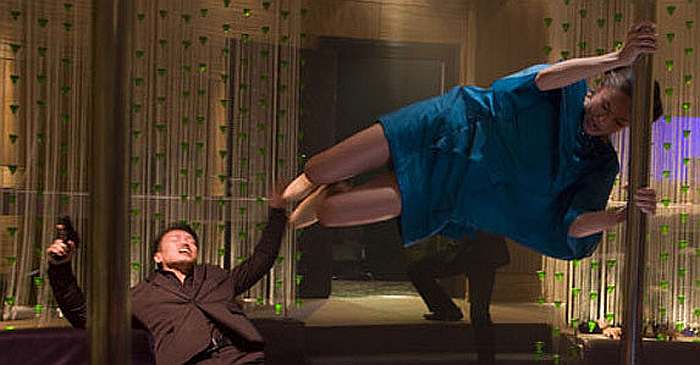 ★½
★½
“Street-fighting Tears”
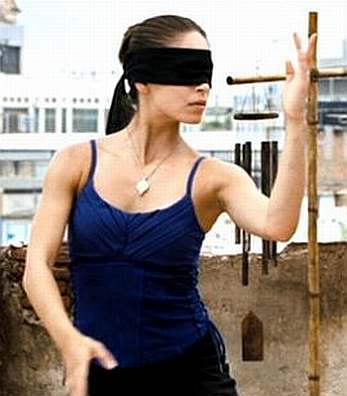 I usually have no problem going on about GWG movies at some length. Hell, I even managed 750 words on DOA: Dead or Alive, and for that one, I had to re-read my review to remember what it was about. But when I got to the end of Street Fighter: The Legend of Chun-Li, my first thought was, “What the hell am I going to write about this?” It seemed likely the only way I’d get to 750 words, would be by repeating the title one hundred and twenty-five times. For the film is ill-conceived, poorly cast, badly written and directed by the man who managed to make Jet Li look bad, not once but twice, in Romeo Must Die and Cradle 2 the Grave.
I usually have no problem going on about GWG movies at some length. Hell, I even managed 750 words on DOA: Dead or Alive, and for that one, I had to re-read my review to remember what it was about. But when I got to the end of Street Fighter: The Legend of Chun-Li, my first thought was, “What the hell am I going to write about this?” It seemed likely the only way I’d get to 750 words, would be by repeating the title one hundred and twenty-five times. For the film is ill-conceived, poorly cast, badly written and directed by the man who managed to make Jet Li look bad, not once but twice, in Romeo Must Die and Cradle 2 the Grave.
I am not a difficult man to satisfy, especially in the area of Hollywood action heroine flicks. I’m so pleased they are making the effort at all, that as long as it is in focus, and the dialogue largely audible, I am generally a happy camper. Not so here, because SF:TLoC-L [I trust you appreciate how I am not gratuitously padding my word-count?] commits the cardinal sin for the genre. It’s boring – to the extent that I actually dozed off for a bit about two-thirds of the way in. So, full disclosure: this review is based on only about 90% of the movie. It’s possible the ten minutes I missed were sublimely good, so amazing they redeemed the entire rest of the movie. However, I would be inclined to bet against that outcome, as somewhat unlikely.
I think my major issue is that the movie seems to be aimed at a mentally-challenged eight-year old. There’s way too much voiceover, which is usually the sign of a director who can’t trust the script or his skills to put over the necessary content or emotion. And it also insists on Spelling Out Everything For The Audience, which is equally irritating. Case in point. Chun-Li (Kreuk) helps a guy being beaten up on the subway: he has a mysterious cobweb tattoo. Then, later, when she’s going through Chinatown searching for someone to translate a scroll, she encounters a man in the street with the same tattoo. Not two minutes later, the same design shows up on the scroll, but Bartkowiak insists on flashing back to both the subway and street guys and their tattoos. Well, duh…
The plot starts with Chun-Li growing up, and her father is abducted by Bison (McDonough) to help with his plans for… whatever. World domination, prob’ly. As an adult, Chun-Li is now a pianist, though the scenes of her in concert are incredibly badly-faked. The arrival of the mysterious scroll has her heading off to Bangkok, where she links up with Gen (Shou), who completes her training. Conveniently, Bison has just returned to Bangkok, where he grew up, and is now planning to take over a large swathe of the city, regardless of the views of the inhabitants. Interpol agent Nash (Klein) and local cop Maya (Moon Bloodgood) are out to stop him, and find Chun-Li’s presence as much a distraction as a help.
 And I believed Street Fighter II was a fighting game. Silly me. It’s far too talky: all mouth and no trousers, to borrow a good ol’ British phrase. The fights themselves, choreographed by Dion Lam, aren’t bad, though the welding of some of the Street Fighter moves into the game doesn’t work – Chun-Li’s Spinning Bird Kick, for example, just looks silly. But otherwise, they aren’t awful; there’s a nice brawl in a bathroom between our heroine and Bison’s henchwomen. However, particularly in the first hour, there just aren’t enough of them, and what should be a fast-paced slugfest becomes bogged down as Chun-Li meanders her way, with a somewhat concerned expression, around the slums of Bangkok [which actually look surprisingly liveable. You want real slums, try Mumbai].
And I believed Street Fighter II was a fighting game. Silly me. It’s far too talky: all mouth and no trousers, to borrow a good ol’ British phrase. The fights themselves, choreographed by Dion Lam, aren’t bad, though the welding of some of the Street Fighter moves into the game doesn’t work – Chun-Li’s Spinning Bird Kick, for example, just looks silly. But otherwise, they aren’t awful; there’s a nice brawl in a bathroom between our heroine and Bison’s henchwomen. However, particularly in the first hour, there just aren’t enough of them, and what should be a fast-paced slugfest becomes bogged down as Chun-Li meanders her way, with a somewhat concerned expression, around the slums of Bangkok [which actually look surprisingly liveable. You want real slums, try Mumbai].
However, the casting executive who thought a member of the Black-Eyed Peas was suitable to play Vega should be taken out and flogged mercilessly. This is not sarcasm. It’s not someone who looks like a member of the Black-Eyed Peas. It is a member of the Black-Eyed Peas. His martial arts skills are almost as unconvincing as Chun-Li’s piano-playing. Almost. Klein is equally inept as Nash – the witty banter between he and Maya hits the floor with a resounding clunk, due to the complete lack of chemistry between the two actors. Similarly, McDonough has none of the charisma necessary for Bison. Say what you like about the Van Damme Street Fighter movie, and the venom is probably dripping from your lips there, it did at least have Raul Julia.
In fact, this movie pretty much makes the original look Oscar-worthy in most ways. The best depiction of the game still remains the manic sequence in Jackie Chan’s City Hunter where he and Gary Daniels went toe-to-toe in a variety of epically-silly costumes. Chan made a much better Chun-Li than Kreuk could ever hope to, and any future list of “10 Crappiest Video-game Adaptations of All Time” (admittedly, the main issue here is stopping after just ten) will be judged largely on how highly this ranks. Is that 750 words yet?
Dir: Andrzej Bartkowiak
Star: Kristin Kreuk, Chris Klein, Neal McDonough, Robin Shou





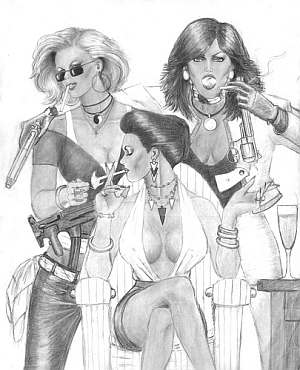
 The rise of self-publishing has provided an opportunity for authors to distribute their product directly to the public – it’s no longer necessary to have a contract or even a publishing house. This is, frankly, a double-edged sword: just because you
The rise of self-publishing has provided an opportunity for authors to distribute their product directly to the public – it’s no longer necessary to have a contract or even a publishing house. This is, frankly, a double-edged sword: just because you 
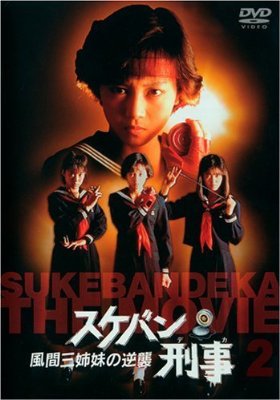 Perhaps the most startling thing here is the amount of political subtext, albeit likely somewhat unintentional. Saki Asamiya (Asaka) is part of the student police force, but feels they are overly brutal, beating anyone who “isn’t a straight arrow”, to quote Asamiya. This leads her to quit, heading off for a spot of slow-motion horse-riding more befitting a feminine hygiene commercial. However, she returns, teaming up with her sisters, when she discovers that her erstwhile colleagues are staging terrorist attacks, and blaming them on a group called the Outcast League, a with the aim of strengthening their position and gaining even greater powers. Asamiya joins the League, only to find the full force of the law now turned on her.
Perhaps the most startling thing here is the amount of political subtext, albeit likely somewhat unintentional. Saki Asamiya (Asaka) is part of the student police force, but feels they are overly brutal, beating anyone who “isn’t a straight arrow”, to quote Asamiya. This leads her to quit, heading off for a spot of slow-motion horse-riding more befitting a feminine hygiene commercial. However, she returns, teaming up with her sisters, when she discovers that her erstwhile colleagues are staging terrorist attacks, and blaming them on a group called the Outcast League, a with the aim of strengthening their position and gaining even greater powers. Asamiya joins the League, only to find the full force of the law now turned on her. This film was made between season two and season three of the television series, and represents a passing of the torch from Saki, SD #2 (Minamino) to SD #3 (Asaka), in preparation for the upcoming TV show. Saki has just about given up her life as a detective, but finds herself dragged in when she, literally, bumps into someone on the street. He turns out to be an escapee from Hell Castle, a reform school for wayward kids on an island near Tokyo, and she discovers that Principal Hattori (Ibu) is training the pupils to be a brainwashed army for an upcoming coup d’etat [the word is exactly the same in Japanese, incidentally]. She goes to her bosses with the information, but the investigation is quickly killed from above, for reasons I’m sure you can guess. So, it’s up to Saki to put together a team, sneak onto the island, rescue the inmates and stop Hattori. He turns out to be a nemesis from the TV show, though that back-story will, for obvious reasons, be lost on the vast majority of Western viewers.
This film was made between season two and season three of the television series, and represents a passing of the torch from Saki, SD #2 (Minamino) to SD #3 (Asaka), in preparation for the upcoming TV show. Saki has just about given up her life as a detective, but finds herself dragged in when she, literally, bumps into someone on the street. He turns out to be an escapee from Hell Castle, a reform school for wayward kids on an island near Tokyo, and she discovers that Principal Hattori (Ibu) is training the pupils to be a brainwashed army for an upcoming coup d’etat [the word is exactly the same in Japanese, incidentally]. She goes to her bosses with the information, but the investigation is quickly killed from above, for reasons I’m sure you can guess. So, it’s up to Saki to put together a team, sneak onto the island, rescue the inmates and stop Hattori. He turns out to be a nemesis from the TV show, though that back-story will, for obvious reasons, be lost on the vast majority of Western viewers.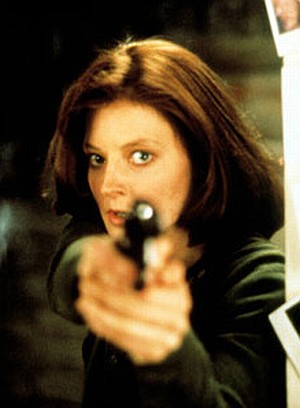
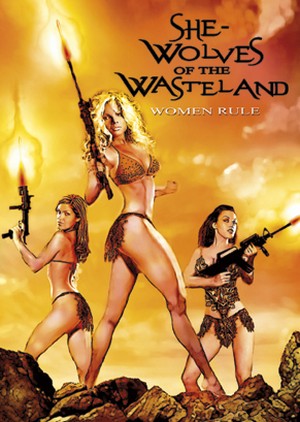 I remember seeing this under its original title back in the 1990’s, and being unimpressed by it then. Fooled into acquiring it on DVD under its new name, time has not been kind to this distaff version of Mad Max. Phoenix (Kinmont) finds herself taking care of Keela (Sanders), who is pregnant with a male child – a rarity, in a world which, thanks to biological war, is populated almost entirely by women. Overseeing things is the Reverend Mother (Howard) and her sidekick Cobalt (Khambatta), who are intent on keeping control. And, boy, can they hold a grudge, since Keela goes from utterly flat, to giving birth, to being the mother of a kid at least four years old, in the space of about two minutes cinematically. Not quite sure what the villains are doing during this time: presumably ruling over an empire populated entirely by extras from a Duran Duran video,
I remember seeing this under its original title back in the 1990’s, and being unimpressed by it then. Fooled into acquiring it on DVD under its new name, time has not been kind to this distaff version of Mad Max. Phoenix (Kinmont) finds herself taking care of Keela (Sanders), who is pregnant with a male child – a rarity, in a world which, thanks to biological war, is populated almost entirely by women. Overseeing things is the Reverend Mother (Howard) and her sidekick Cobalt (Khambatta), who are intent on keeping control. And, boy, can they hold a grudge, since Keela goes from utterly flat, to giving birth, to being the mother of a kid at least four years old, in the space of about two minutes cinematically. Not quite sure what the villains are doing during this time: presumably ruling over an empire populated entirely by extras from a Duran Duran video, This frothy concoction is light-hearted entertainment, which doesn’t exactly pack much of a wallop, but has some nice characters and situations. Heroine Chun (Kim), is a young cop, galled when her undercover mission is swept away by a rival; she gets another chance, but to her dismay, this involves going back to school to watch the daughter (Nam) of a gang member who has agreed to testify against his boss, but has since vanished. Of course, a hot-tempered cop with martial arts skills fits
This frothy concoction is light-hearted entertainment, which doesn’t exactly pack much of a wallop, but has some nice characters and situations. Heroine Chun (Kim), is a young cop, galled when her undercover mission is swept away by a rival; she gets another chance, but to her dismay, this involves going back to school to watch the daughter (Nam) of a gang member who has agreed to testify against his boss, but has since vanished. Of course, a hot-tempered cop with martial arts skills fits 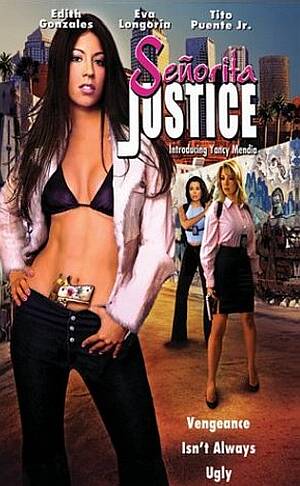 This is an interesting contrast to Sunland Heat which took a woeful script and executed it briskly enough to work. Here, the story isn’t bad – Anna Rios, a Hispanic lawyer (with a special forces background!) goes back to her roots, after her brother is gunned-down, and uncovers a maze of murky deals. It’s the execution which is largely inept, “Kantz” providing further evidence that one-name directors suck at GWG films – see also Charlie’s Angels: Full Throttle (McQ), Catwoman (Pitof), Ecks vs. Sever (Kaos) and Tomb Raider 2 (Jandebont).
This is an interesting contrast to Sunland Heat which took a woeful script and executed it briskly enough to work. Here, the story isn’t bad – Anna Rios, a Hispanic lawyer (with a special forces background!) goes back to her roots, after her brother is gunned-down, and uncovers a maze of murky deals. It’s the execution which is largely inept, “Kantz” providing further evidence that one-name directors suck at GWG films – see also Charlie’s Angels: Full Throttle (McQ), Catwoman (Pitof), Ecks vs. Sever (Kaos) and Tomb Raider 2 (Jandebont). This Brazillian-shot entry has a lot of good ideas, and some excellent moments, but comes up short with a script that borders on the incomprehensible. For example, in the middle of the film, the hero and heroine are both shot with tranquilizer darts – but no subsequent mention or explanation of this ever appears. This kind of sloppy plotting plagues the movie; it’s almost half-way through before the basic story becomes clear.
This Brazillian-shot entry has a lot of good ideas, and some excellent moments, but comes up short with a script that borders on the incomprehensible. For example, in the middle of the film, the hero and heroine are both shot with tranquilizer darts – but no subsequent mention or explanation of this ever appears. This kind of sloppy plotting plagues the movie; it’s almost half-way through before the basic story becomes clear.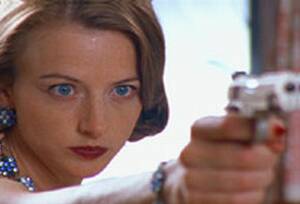 There’s lots to appreciate, not least the actors. As opposed to many films, Hagen here actually looks like she could kick your ass, and the flashback fight sequence is excellent – I’d like to have seen more of that, and all the battles are well staged and shot. While Perry is somewhat bland, he’s effective in action; Richardson is a B-movie veteran for almost two decades (Hollywood Chainsaw Hookers, Attack of the 60-foot Centrefold, etc.), and has a nice, world-weary air here. But Putney (left) is perhaps the best find as Daniel’s gun-toting sidekick, Jackie; the final scene between her and her boss is fabulously intense. And there are other cool little aspects, in things like Daniel’s henchmen.
There’s lots to appreciate, not least the actors. As opposed to many films, Hagen here actually looks like she could kick your ass, and the flashback fight sequence is excellent – I’d like to have seen more of that, and all the battles are well staged and shot. While Perry is somewhat bland, he’s effective in action; Richardson is a B-movie veteran for almost two decades (Hollywood Chainsaw Hookers, Attack of the 60-foot Centrefold, etc.), and has a nice, world-weary air here. But Putney (left) is perhaps the best find as Daniel’s gun-toting sidekick, Jackie; the final scene between her and her boss is fabulously intense. And there are other cool little aspects, in things like Daniel’s henchmen.